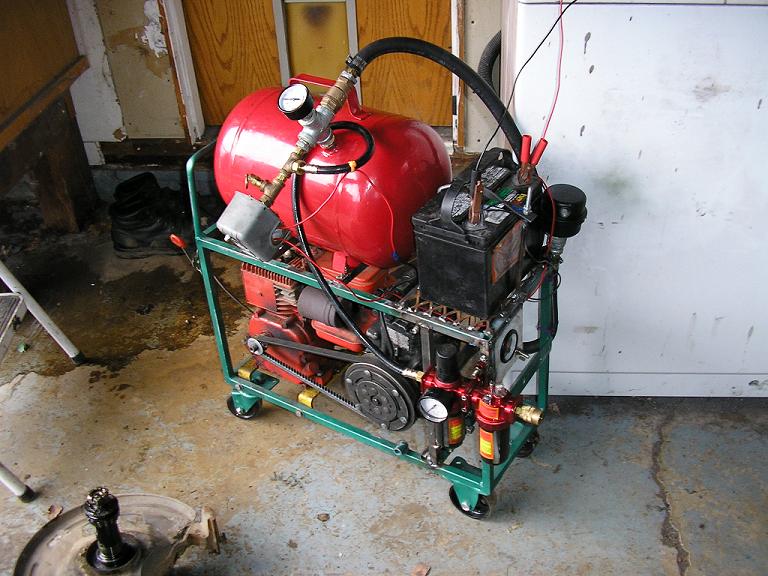
You are a wonder to me. Your paternal grandparents passed their mechanical ineptitude directly to their elder son, your father. Your grandfather had the ability to find the extra nuts and bolts in the simplest of machines. Whenever he never worked on our bicycles he often discovered a spare part or two. Your grandmother never drove a car and the roads would have been safer if your grandfather never had either. Your aunts, uncle and I assumed the position of religious supplicants and prayed throughout our journeys with him. Fortunately, he did not buy a car until we were almost fully grown otherwise there would have been no more me and, therefore, no you.
So it is a complete surprise to me that you have the opposite ability. You can take spare parts and produce a machine from them. Where, in all the science of genetics, is there an explanation of the reversal of traits otherwise inherited over many generations?
The other day, you sent me a photo of a machine you had built. You had designed and welded a frame from steel tubes and added some steel mesh to support a battery. The framing has two platforms, one above the other and wheels to make it mobile. On the lower deck, there is a two horse-power motor from a friend’s lawnmower. You tell me it makes your machine grossly underpowered. The result, you say, is that you could only use a “teensy tiny pulley on it.” You had to use the smallest one you could find to get enough torque multiplication to spin the compressor. You explain to your un-mechanical parent that “torque multiplication” means “gearing”. I thank you for clarifying the term. I would have never known.
You tell me that the lawn mower motor has a throttle cable. There is also a choke lever. Chokes I understand and levers I understand but that may be the limit of my comprehension. A metal tag grounds the spark plug to shut off this wonderful machine. The battery you installed on the top deck with the tank and regulators, is a Wal-Mart “‘lawn and garden” special.
Next to the motor on the lower deck, is the compressor. You pulled it from a junk yard 1980 Volvo. You tell me that until the mid 80’s Volvo used a nice ten cubic inch York compressor. I have no idea how you know this stuff.
The plumbing, which connects the compressor to the tank, is all regular piping for air compressors that you bought at Orchard Supply. It is mostly ¼ inch pipe, with some ½ inch fittings in the shape of a large cross and attached to the air tank. Since the compressor uses car-air-conditioning-pipe sizes, it has two pieces of hose cut out of a Volvo and hose-clamped onto normal sizes.
You spent three dollars on an intake filter at a clearance sale at Sears because they are only selling parts on the web now. You point out that it is a “black round thing” knowing that you are not stretching my mechanical ability with your description. The “shiny red thing with the gauge”, you tell me, is a regulator to bring the air pressure down to 90 pounds per square inch for tools. The tank holds 120 psi. You have also installed a filter and lubricator to protect your tools.
You installed a pressure switch that connects the battery to the clutch on the compressor, to turn it on and off when tank pressure goes up and down. The motor runs all the time the machine is in use. The battery will last for several hours before you have to charge it.
Now I see how you made this thing and use it to run air driven tools as you work on your pickups. But I still do not follow where all this talent originated. To the extent that I understand torque multiplication, it seems to me that there has been considerable gearing up from your father’s and grand-father’s mechanical ability. My only explanation is that your DNA has undergone some serious torque multiplication of its own. Whatever the origin of this ability of yours, I admire it. You are a wonder and a joy to me.
Back to ... Love Stories | Home page